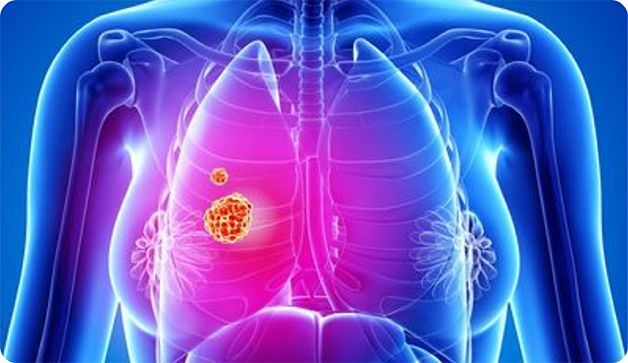Lung Cancer
Abnormal and uncontrolled growth of cells in the lungs leads to lung cancer. The formation of tumors in the lungs affects other functions, especially breathing. Looking at the numbers, it is one of the prevalent cancers in India which is more common in both active and passive smokers.


Types of Lung Cancer
Depending on the appearance of malignant cells, lung cancers are of the following types:
- Non-small Cell Lung Cancer (NSCLC): This is the most common type and slow-growing cancer which is subdivided into the following:
- Adenocarcinoma: This cancer starts in the mucous-producing cells in the lungs
- Squamous Cell Carcinoma: This cancer starts in the squamous cells lining the airways.
- Large Cell Carcinoma: This cancer starts in the large cells of the lungs.
- Small Cell Lung Cancer (SCLC): This is another rare and aggressive cancer which is more common in smokers. The cancer is very rapid and spreads to other organs. Hence, it is usually detected at the advanced stag






